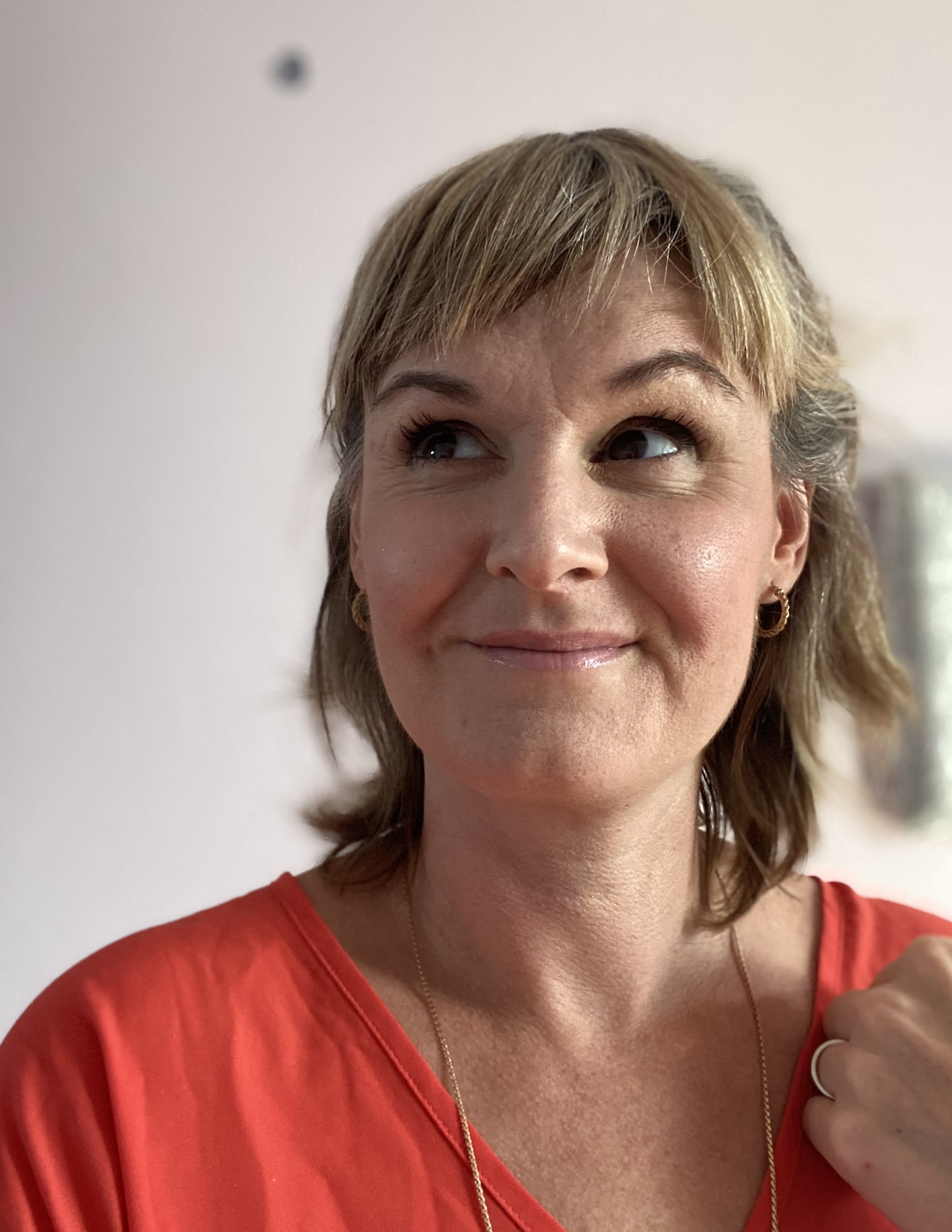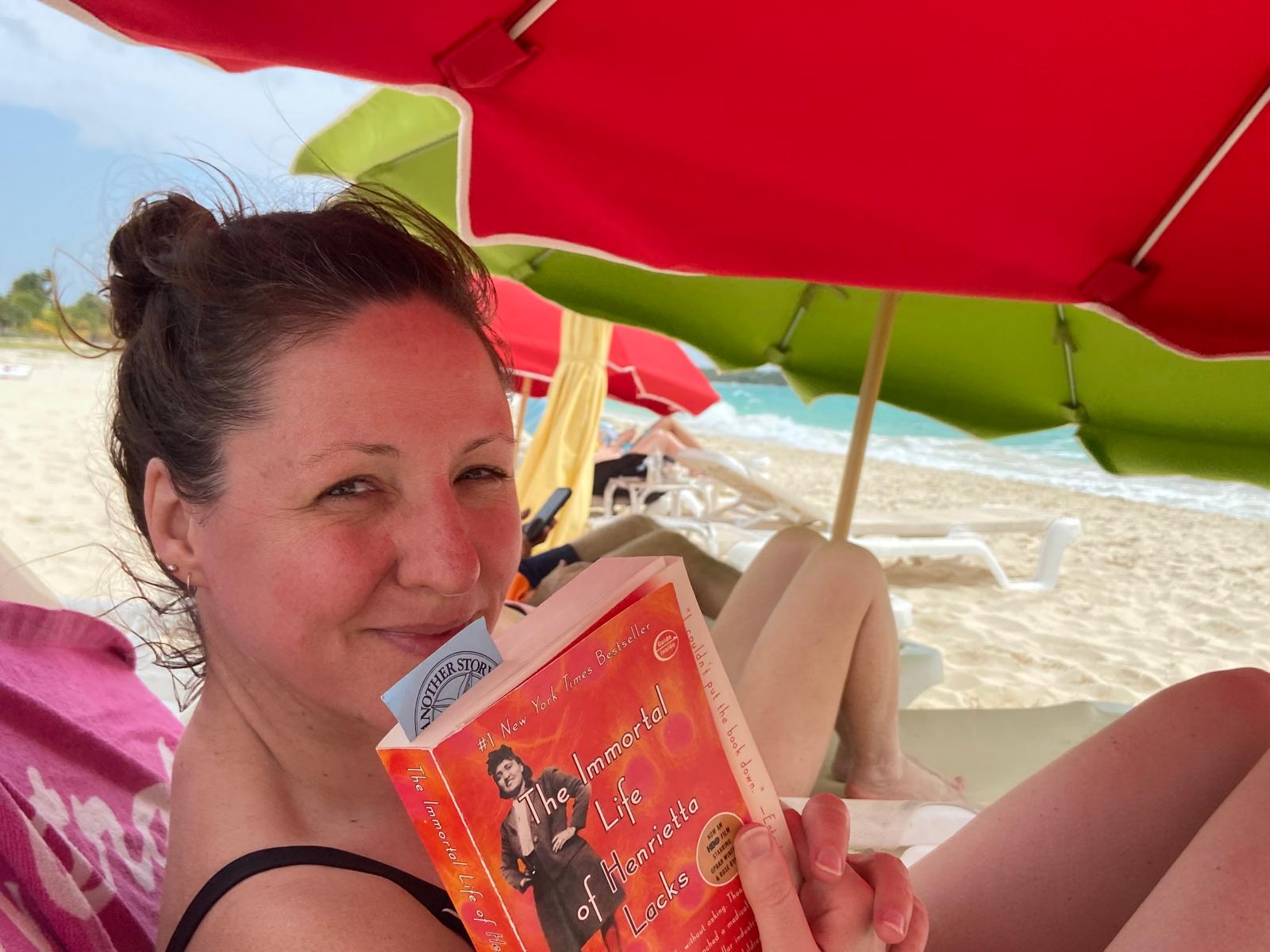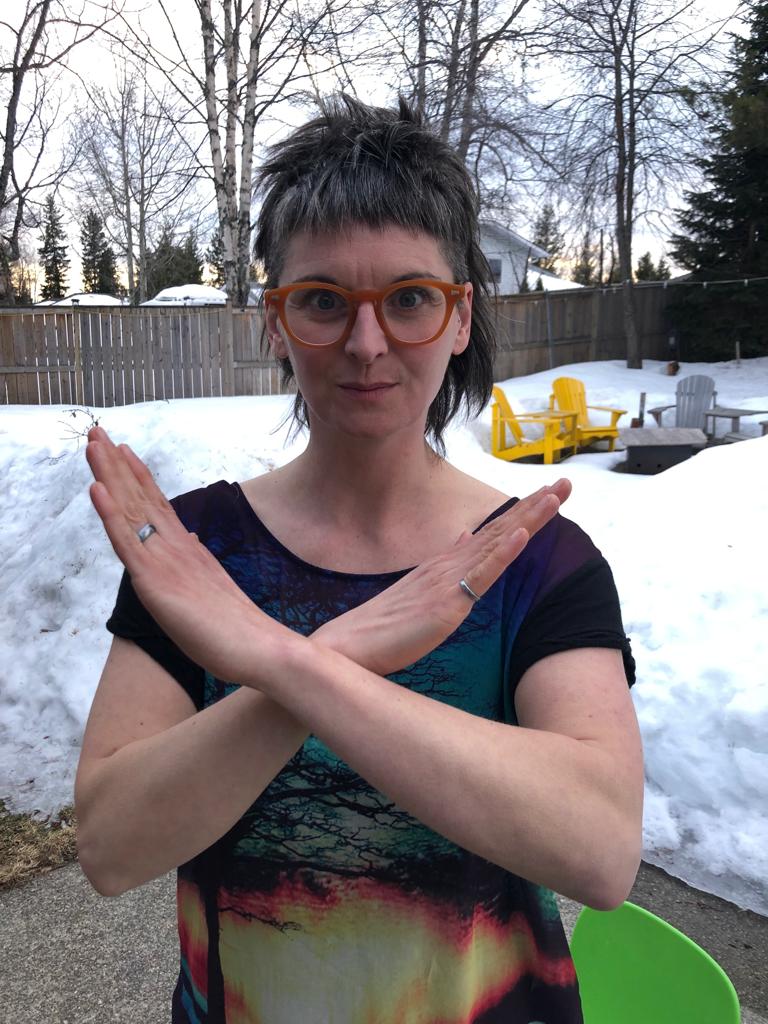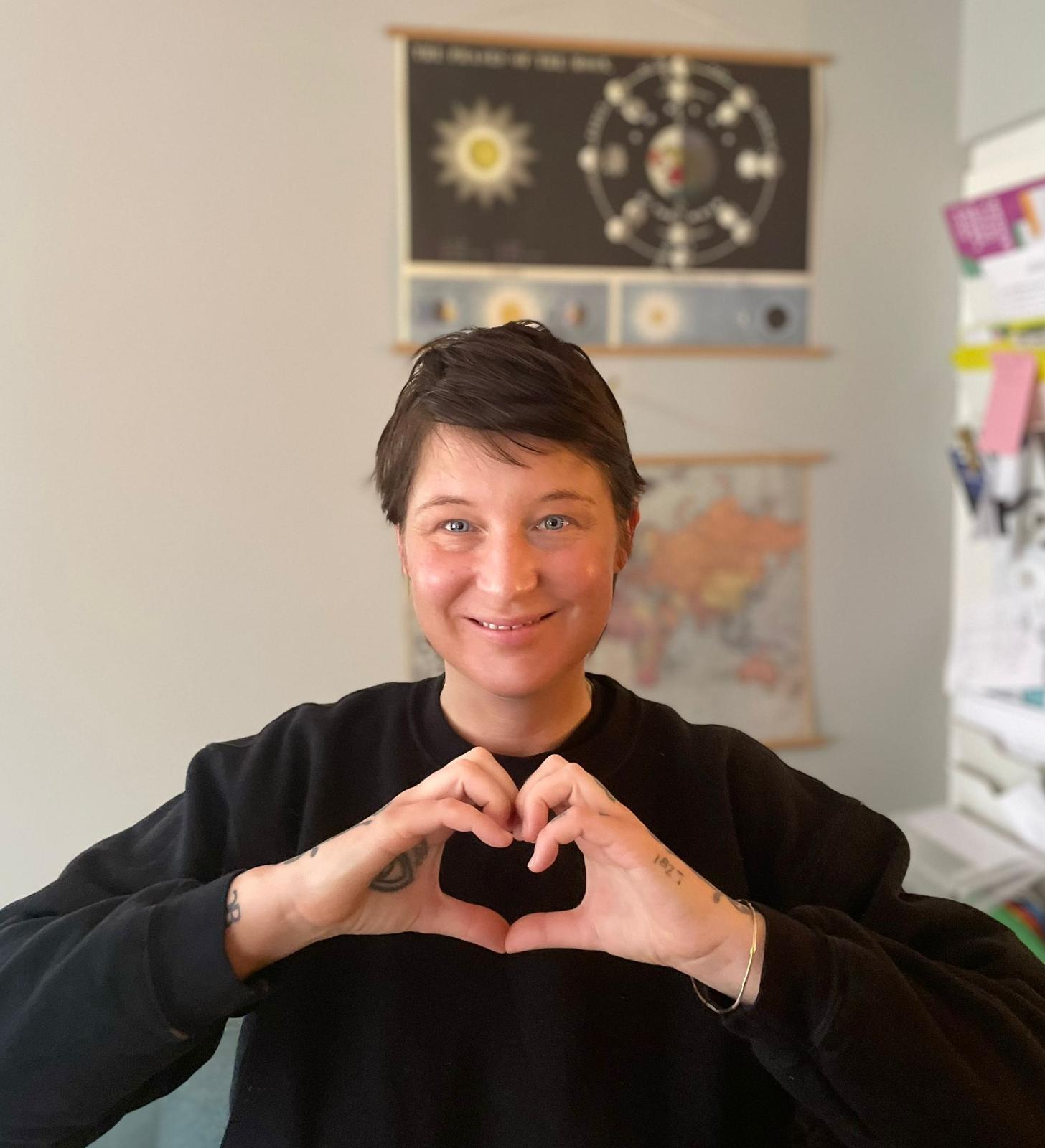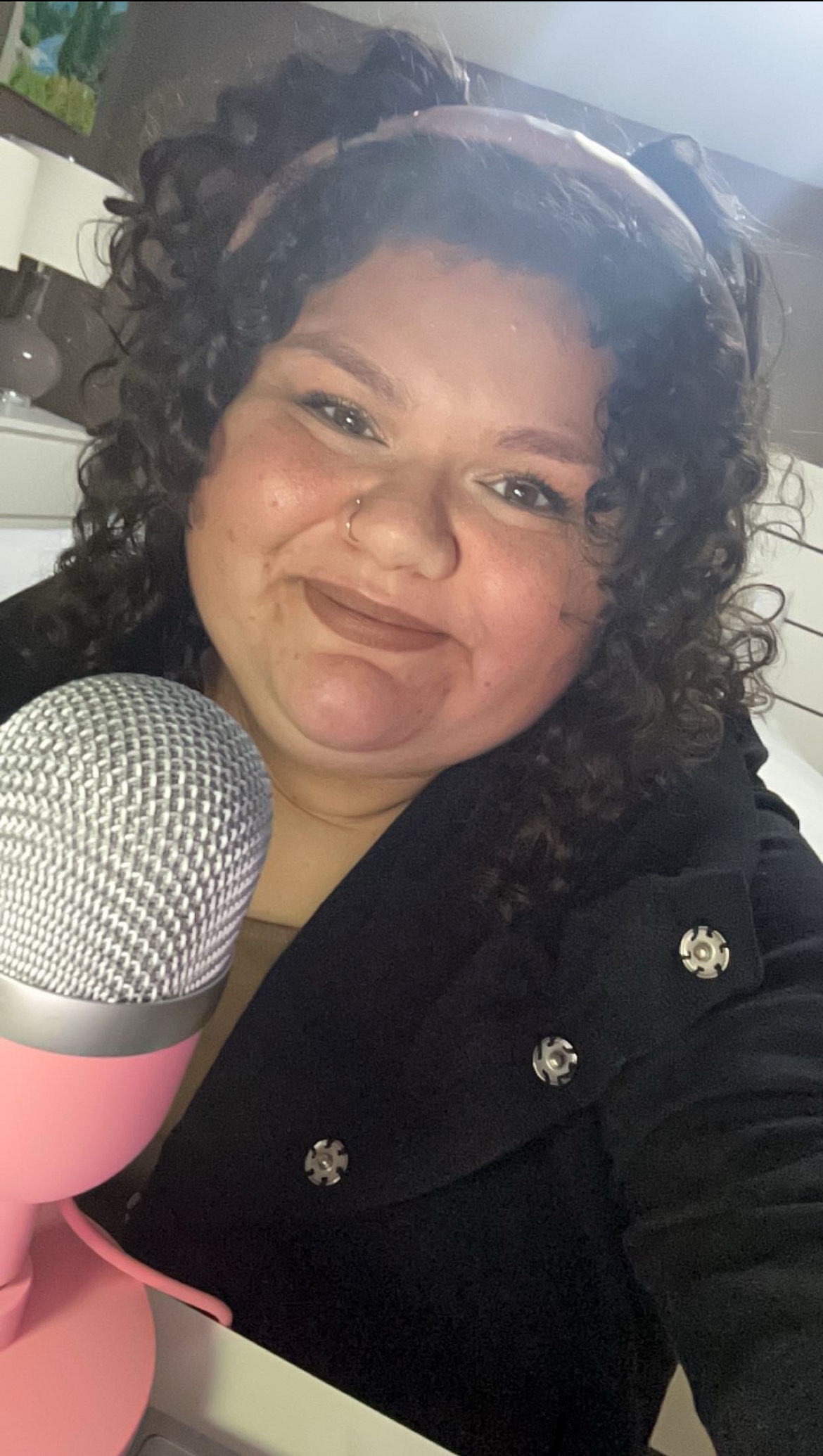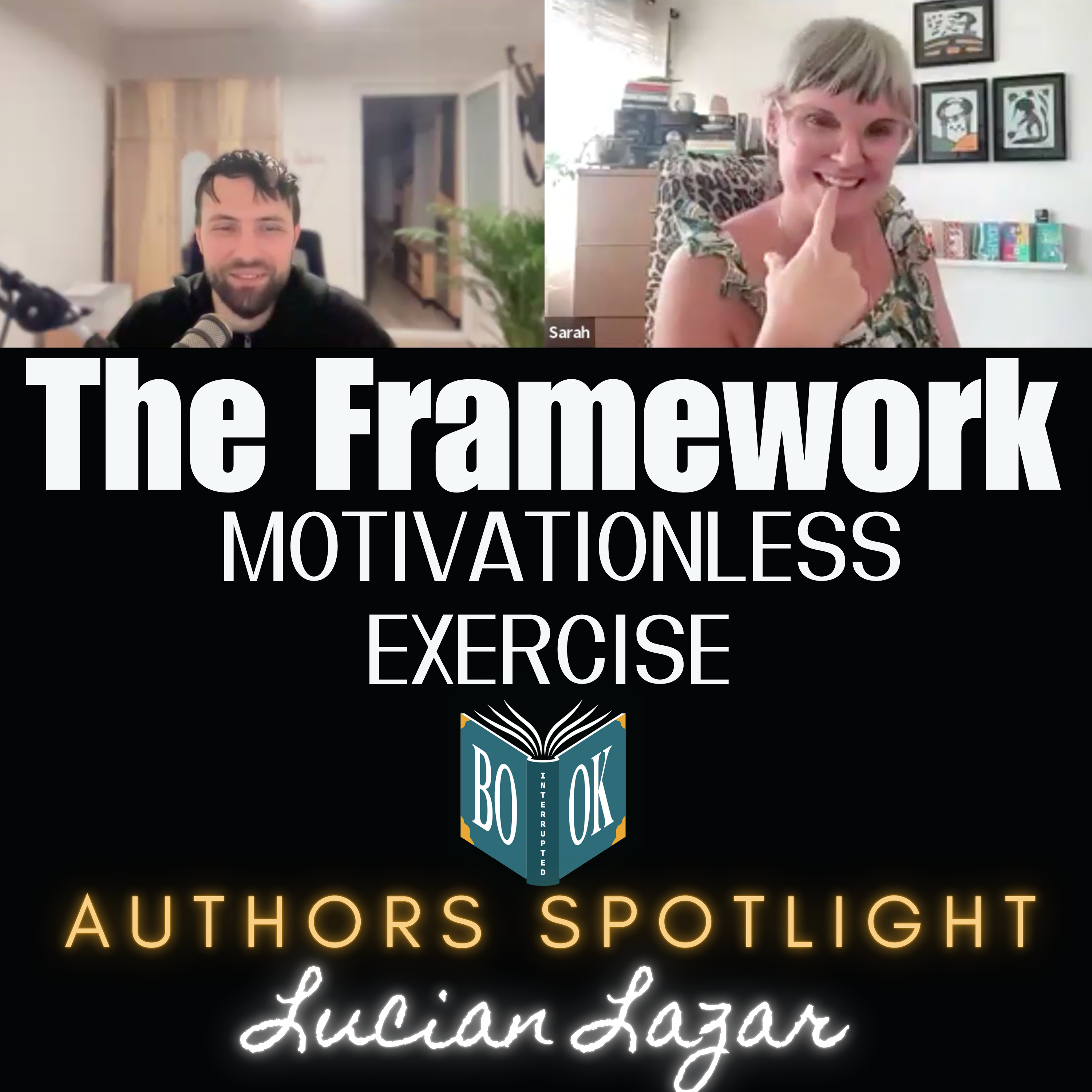Episode Transcript
[00:00:00] Speaker A: You've thought about joining a book club, but there's one you're too busy or buying books aren't in your budget or some books aren't in the format that you can access.
Or you lose interest before you can finish. Or maybe you have no interest in reading the book. Whatever the reason, there is a book club for that here at Book Interrupted. Reading the book is not a prerequisite for joining the conversation. It's about connecting and celebrating life's interruptions.
Join the community by following us on Facebook or contact us through our website at www.bookinterrupted.com.
fans, we'd love to hear from you. Parental guidance is recommended because this episode has mature topics and strong language.
Here are some moments you can look forward to during this episode of Book Interrupted.
[00:00:51] Speaker B: Genuinely love it. Like it's not just because it's my book or it's my idea. I, I love this because I haven't heard it anywhere else.
[00:00:58] Speaker C: The first month is rough, but once you get that habit in, it's there forever.
[00:01:03] Speaker B: And an additional advantage to this method is that you don't feel guilty because you're respecting the framework.
[00:01:10] Speaker C: So they made a commitment to themselves and then they created a habit for that commitment, like brushing your teeth.
[00:01:16] Speaker B: Really any kind of long form content, you're kind of downloading it into your brain and it sticks there.
[00:01:22] Speaker C: And she happened to have a gymnast membership of me and, and more times than not I go to her house to pick her up to go to the gym and then we ended up staying in and ordering food and watching a movie or something.
[00:01:33] Speaker B: Because this consistency can last 20 years or your whole life.
[00:01:44] Speaker D: To read a book is the goal.
I want to learn something new and I don't wanna be disrupted.
Mind, body and soul.
Inspiration is the goal and we're gonna talk it out on book.
[00:02:09] Speaker C: On Book Interrupted.
[00:02:10] Speaker D: Interrupted.
[00:02:13] Speaker A: Welcome to the author's Spotlight. During these mini episodes, we have authors come on and tell us about their books and why we should read them. Let's listen.
[00:02:21] Speaker C: Welcome to the Author Spotlight. On this episode, we're interviewing Lucien Lazar and his book the Framework Motivationalist Exercise.
[00:02:31] Speaker A: So why don't you let us know.
[00:02:32] Speaker C: Why we should read your book.
[00:02:34] Speaker B: Thanks for having me. It's my first interview about the book and I wrote the book because I think I discovered the way in which people can keep up with the workout schedule, basically, or just an exercise schedule or even simpler, just keep up with a healthier way of life in terms of exercising. Now I'm just trying to Put it in simpler words just because it sounds like any generic blog post or book on workouts or exercise or gym schedules or workout plans. But it really is pretty simple in its core. The reason I wrote the book is because a book, basically when you read about something in a book or really any kind of long form content, you're kind of downloading it into your brain and it sticks there. And that's why I have in a book at the end I talk about these anecdotes. I think there are seven of them. I tried to cover the as diverse as possible area of situations so that many types of people in many types of situations can relate to those anecdotes.
[00:03:55] Speaker C: Can you give me an example of one of the anecdotes?
[00:03:57] Speaker B: Yeah, it's really funny because the first anecdote is about a woman called Sarah.
So that's funny.
Yeah. And it's just about she had a busy schedule.
[00:04:09] Speaker E: Right.
[00:04:10] Speaker B: The most interesting anecdote would be the last one, which I call Tom the Potato Coach.
It's about someone who's like really at the opposite of the gym, going spectrum where he's extremely lazy and might even have some health issues which compound with the laziness. And it's, you know, it's circular relationship. It really is about starting small. Whenever I try to talk about the book, I have to somehow pass this cliche wall of obviously, yeah, you have to start small and obviously you have to be consistent and everything.
But the twist in my framework, that's why I call the book the framework, is that there shouldn't be any specific thing that you should do, but instead you should do something each day. I genuinely love it. Like it's not just because it's my book or it's my idea, just I love this because I haven't heard it anywhere else. Each day you have to do something and it can be from going to the gym, working out, right. Some sets of muscles or whatever. Like I'm not going into details. So I'm not like giving workout plans or stuff like that. Like there are a lot of people that are better than me on that. And yeah, so you can go from training at the gym all the way to just laying in bed and watching 5 minute video about gym. I personally like the Athleanx guy, if you know him, he's very popular on YouTube and he knows bodybuilding inside out. The general idea is that because each day you can do something as easy as as just watching a YouTube video, then it's pretty much impossible to interrupt Your schedule, right? And some people, when they hear this, they just say something like, yeah, you eventually end up just watching videos 14 days in a row. But for me, it doesn't happen. Like, maybe there were two days in a row when I just watched videos on YouTube and. And imagine between going at the gym and watching a YouTube video on exercising. There's a spectrum, right? So you go walk your dog and you just go to the grocery, grocery store, or, I don't know, do some chores. And the book goes into each level of intensity. The basic thesis here is that by being consistent on the long term, it's more valuable than, for example, going for a run every day or even every other day, because this consistency can last 20 years or your whole life.
[00:06:54] Speaker C: You've created a habit for someone that every day they do something for their health, some sort of fitness. So it could be a video, but they're committed to themselves. So they made a commitment to themselves and then they created a habit for that commitment, like brushing your teeth or.
[00:07:10] Speaker B: That's exactly what I want to say. Yes, it's possible. And it's harder to brush your teeth than to watch YouTube video. Right? So it's kind of more involved. You have to move.
[00:07:19] Speaker E: Right.
[00:07:21] Speaker B: So it's kind of the. The proof that this should work.
[00:07:25] Speaker E: Right.
[00:07:26] Speaker C: Also, I think if you're inundated with images like, so you don't go to the gym and you don't go for a run and you don't do weights or yoga or something more intensive. Well, yoga, yeah. Still, it can be intensive. I do some intensive yoga. Normally I do more relaxing yoga, but. But the point is, you've made a commitment to yourself, so you're watching a video of someone doing it because you don't have time, or you're really tired or you're sick. Like things happen in life, but you're still committing to yourself. Okay, I can't do it because I'm sick, but I can lie in bed and watch someone else do it. So then I know I've maintained my commitment. I did something. Writers do that, like you. Every day you write something, even if it's not your novel. It's. It's not anything important. It's like you write in your journal, but you've written something, so you've committed to this task, even if it's not really the big picture. I agree. People get overwhelmed by this huge, massive goal and they don't know how to get there. Like, I want to be super fit, and it's like they go crazy For a week maybe. And then they're just like, I'm so sore, I can't do it. I don't wanna. Because one of the. Actually one of the other members of Book interrupted. When we were younger, we met at a gym and she happened to have a same gym membership of me. And more times than not I go to her house to pick her up to go to the gym. And then we ended up staying in and ordering food and watching a movie or something.
Once a week we end up being like, let's go stay home.
Like, we'd be in our gym clothes but we wouldn't be at the gym. But the thing is, yeah, if you make a commitment that if we were in that circumstance we'd have to watch a gym movie or.
[00:09:03] Speaker B: Yeah, that would be a really good idea.
[00:09:05] Speaker C: We might have been like, oh, let's just go to the gym. Let's just go there anyway.
[00:09:09] Speaker B: Yeah, that would be a really good idea. And it's like just staying on the frequency like a radio or something. And you never turn it off.
[00:09:15] Speaker C: I like it. I'm a big fan of habits. I'm a big habit person. Like, I'm a very good at creating a routine and a habit.
And I love anything that helps you create more habits. And once they're in, like the first month is rough, but once you get that habit in, it's there forever.
It's just there. I love it.
[00:09:35] Speaker B: Yeah. I actually mentioned the Atomic Habits book in. At the beginning of the book because obviously it's the closest book to my book.
[00:09:43] Speaker E: Right.
[00:09:44] Speaker B: So you can think of minds. Yeah, you can think of mine just as a more specific implementation of the Atomic Habits book, but in a specific domain also. So in the specific domain, but also in a specific way or in like more in depth. That's the basic idea. The book can be summarized in two pages.
[00:10:08] Speaker E: Right.
[00:10:08] Speaker B: But. Or to really indoctrinate you. Right. With all the. Of the good stuff, you have to read the long form, which is still kind of short.
[00:10:17] Speaker E: Right.
[00:10:17] Speaker B: It's not even 100 pages.
[00:10:19] Speaker C: So is it kind of like a teaching memoir? I was reading the write up.
[00:10:22] Speaker A: You talk about your life and how.
[00:10:24] Speaker C: You use these principles. Or is it just construct.
[00:10:27] Speaker B: Yes. And it feels really similar to this conversation. But it's just a monologue.
[00:10:32] Speaker E: Right.
[00:10:32] Speaker C: It's instructive. Or is it a teaching memoir?
[00:10:35] Speaker B: It's instructive. Me talking about what I think you should do, introducing how I'm doing it, or talk about me real events that happened and how I think and then I go into some fictional side where I have those anecdotes for various types of people. So I can give my take on what I think those people should do in their situations. I think I can. Covering at least 80% of cases. Basically. That's the structure.
[00:11:07] Speaker C: I also saw it said something about, you explore failure and success. So let's say someone doesn't do their one thing. How do you explore the failure and success thing?
[00:11:17] Speaker B: Yeah. So the most important part about this section is whenever I go on a longer trip or on a family visit or like, let's say, like, I'm sick of, I don't know, I have Covid or something. Yeah. You know, knocking wood. But you're basically forced to change your schedule. Whatever you are doing, you have to do something else now. And this includes your morning exercise routine, Right. Just the framework. If you're, if you're doing the framework, it interrupts you from doing that. But the flexibility of the framework just allows you to watch a video, right? So just speaking of the case where you are doing this thing, that's easy. Just watching the video, it allows you to just follow it wherever you go, right? So you can, like, if you're on a trip or you're. Whatever you are, you can still follow it. But if you're in a situation where you can't follow it even if you want it, in that case, as an author, I. If you can't do something, you can, can do it, right? The. The best I can do is tell you what you can do after, like when you start being able to do it after the trip or after.
[00:12:25] Speaker E: Right.
[00:12:25] Speaker B: And the cool idea is because I'm sure whoever listens this and you, Sarah, like, if you ever had this time where you went to the gym and then you had like a pause of five days or seven days, it was harder to resume your gym regimen. Or more than 50% of people, they had a harder time to resume. And some people didn't even resume the gym regimen. So that's, that's an unfortunate thing, right? Because the framework just tells you, man, just go, go for work or watch YouTube video or whatever. It just, it's. It's really easy to pick it up. And an additional advantage to this method is that you don't feel guilty because you're respecting the framework, right? You committed to it. And if you just went for a walk, then you don't feel guilty about not exercising or not doing the harder stuff.
[00:13:22] Speaker C: You pick it back up by doing the small little things like that's how you get them to pick it back up after that week, go for a walk, watch a YouTube video. Like, once you get back to your regular life, just something small. Yeah, and there's that. Because that would be.
[00:13:34] Speaker B: There's not even a push to go towards the intensive stuff. Like, the framework doesn't explicitly mention you to do the harder parts. It just tells you, okay, this is the spectrum. These are examples of various levels of intensities of the framework. And you should do one of these per day.
[00:13:55] Speaker E: Right.
[00:13:55] Speaker B: And I mean, I think that there are places where I. Encourages you to go towards the harder part, but it's not pushing it really hard. I tried to not make you feel guilty if you don't go on the more intense part. And I think that will resonate with a lot of people. It doesn't resonate with me because I don't need a lot of push to do something like this or just to do a framework. But I know there are a lot of people that are extremely lazy, and I try to empathize with them. So, yeah, that's my attempt of helping those people as well.
[00:14:28] Speaker C: That's great. Yeah, it's really hard to. Once you drop a habit to pick it back up. So if you make it easier, there's an easy solution. Then definitely people are more likely to.
[00:14:38] Speaker A: Pick up easy things.
[00:14:39] Speaker B: For me, it really happened many times, and once I just came from a trip and I wasn't motivated enough. And then after a week or something, I was motivated back. But then I realized, wait, I'm just relying on motivation. And that's why the book is called Motivationalness, because it doesn't require motivation. Motivation is something kind of external in a way that it comes and goes. And one day I really wanted to go to the gym like that. Like, the motivation came after I said, so I went to the trip, I came back. Then a week or two have passed, and suddenly motivation came in. I said, wait, I want to go to the gym now. But I'm so perfectionist that I want to conquer this phenomena. Like, I don't want the motivation to tell me to go to the gym.
[00:15:26] Speaker F: So.
[00:15:26] Speaker B: So I will stay here and I will think about something that will be infallible for the rest of my life. I think it came the same day I didn't go to the gym. Then I just said, okay, I am so obsessed with this thing that I will come up with something. It would have been good for me to go to the gym on that day, but I wanted something that can last me the whole, so I am willing to sacrifice that day so I can have a better life forever. So, yeah. And it came up with the framework for me. And then I think after a week or so, I imagine like this should be a book for to help other people. And that's basically how it started, how you did it.
[00:16:05] Speaker C: That's wonderful. So that's how much time we have today, listeners. If you'd like to pick up Lucian's book, you could go to the Book Interrupted website, which is www.bookinterrupted.com shop and there's a section called the Author Spotlight and you can find his book there.
[00:16:20] Speaker A: And it'll take you to Amazon.
[00:16:22] Speaker C: I think that's it. Thank you so much for coming on the show. We really appreciate you.
[00:16:27] Speaker B: Thank you. Thanks.
[00:16:29] Speaker C: No problem.
[00:16:31] Speaker A: Thank you for joining us on this episode of Book Interrupted. If you'd like to see the video highlights from this episode, please go to our YouTube channel, book interrupted. You can also find our videos on www.bookinterrupted.com.
[00:16:46] Speaker F: Bookies, we really want to hear from you. Go to www.bookinterrupted.com to find out the variety of ways you can get in touch. Give us a call and leave a voicemail and we will play it on the podcast. Or write us an email and we can read it on the podcast. Or better yet, leave us a review on itunes.
Anything, bookies, we want to hear from you.
[00:17:11] Speaker D: Pretty please.
[00:17:13] Speaker F: Tell us what you like. Tell us what you don't like. Tell us books you think we should read. Tell us about your favorite moments. Tell us anything, please. We want to know what you think. So don't forget, that's www.bookinterrupted.com or iTunes and leave us a review. We will love to hear from you. Talk to you soon.
[00:17:33] Speaker D: Bookies, Book Interrupted.
[00:17:37] Speaker F: Never forget, every child matters.
